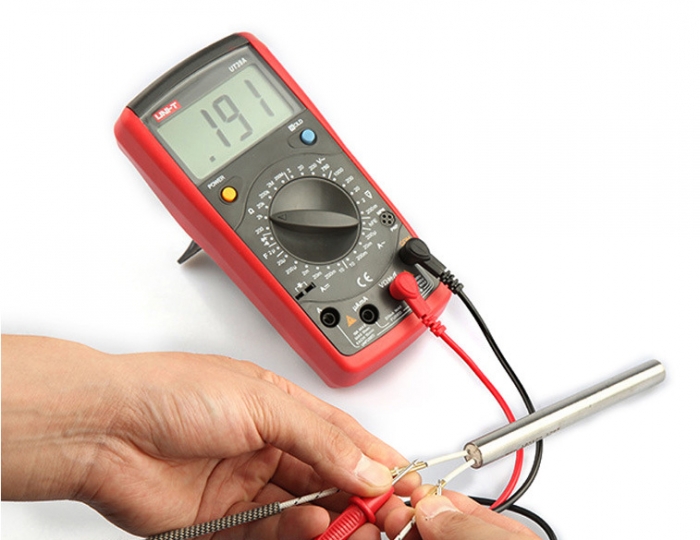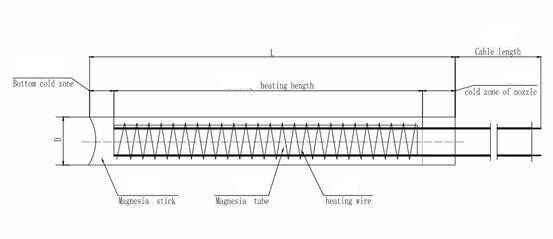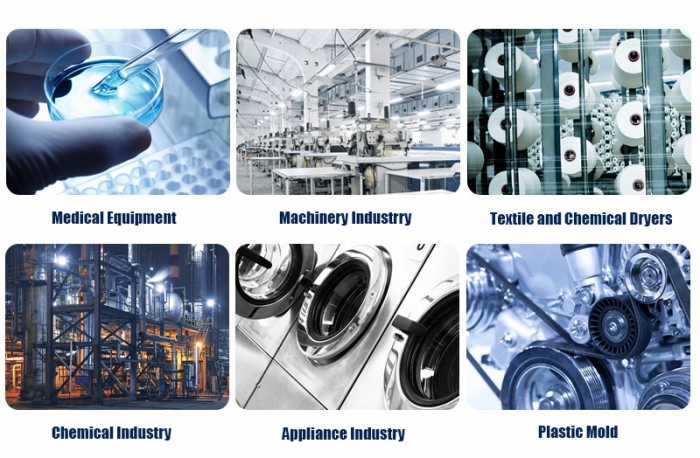What matters to lifespan of heating element

Although XIMO’s heating element products are already built to last, still there are factors influencing the lifespan of heating elements during routine application:
1. There are various types of heating elements made of different materials and designed into versatile specifications for adverse applications. It is essential to choose the propose heating element for specific application purpose.
2. Heaters should be applied on the atmosphere where air relative humidity not exceeding 95%.Working voltage of heater is not exceed 110% of maximum rated density.
3. Immersion heaters are not suitable for heating air and solid. Lifespan of heating element maybe shortened or damages may occur due to the improper use.
4. The active part of immersion heater should be submerged, damages would occur if the fluid drops too low without the immersion heater shutting off.
5. If the Immersion heaters to be used in hard water, please be aware to clean the sediments regularly in order to maximize the service time and heat transfer efficiency.
6. If the heaters are applied to heat solid such as light metals nitrates, alkali,pitch, paraffins etc, Heaters are not to be activated to maximum voltage before the solids dissolved completely.
7. Security measures should be adopted when heating nitrates.
8. The location of heaters should be safely avoid from shock, vibration, dust, corrosion or explosion. If your heater application has been specifically design to withstand these hazardous conditions, then you should choose resistance materials for heating elements.
9. Before installing the heater, the seals and connections should be checked and to to kept clean and dry. The gasket of immersion heater between heater and tank should be drip proof.
10. If the heating element are not to be put on use, they should be stored in ventilated, corrosion-free locations where relative humidity is not exceeding 85%.
11. If the heating element are not to be put on use after a period of time or the cold insulation resistance is under 1Ω, the element can be dried by drying oven under 200℃. Or to be activated in low voltage to remove the humidity.
Contact us any time for further information.

